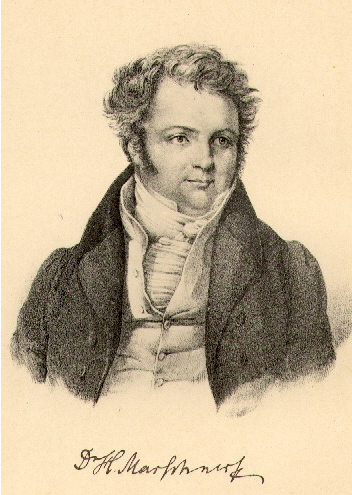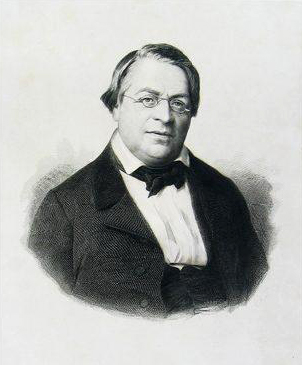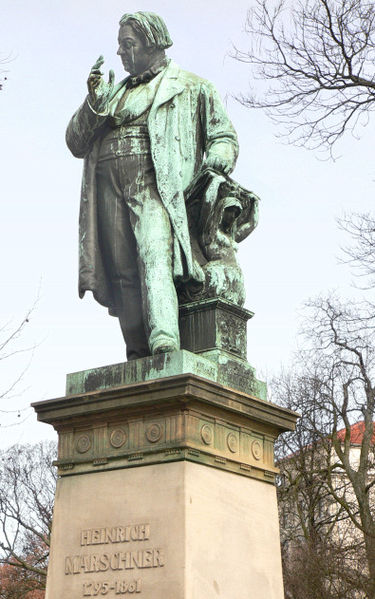<Back to Index>
- Composer Heinrich August Marschner, 1795
PAGE SPONSOR



Heinrich August Marschner (Zittau, 16 August 1795 – Hanover, 16 December 1861), was the most important composer of German Romantic opera between Carl Maria von Weber and Richard Wagner, and is remembered principally for his operas Hans Heiling (1833), Der Vampyr (1828), and Der Templer und die Jüdin (1829). Marschner’s ability to depict supernatural horror by musical means is especially evident in the first two operas as well as in some of his ballads, such as "Die Monduhr" (c. 1839). Next to his operas, his most significant musical contribution is to the Lied, the best of which are comparable with those by Carl Loewe. Marschner also wrote a considerable amount of chamber music, including seven piano trios, as well as unaccompanied male choruses that were very popular in the nineteenth century. While Marschner’s operas strongly influenced Wagner, his chamber music, songs, and his cantata Klänge aus Osten (1842) were admired by Robert Schumann, whose cantata Paradise and the Peri (1843) shows the older composer’s influence. Marschner’s Bagatelles for guitar (1814) have been revived by guitarists, and so have been some of his piano trios. Among his operas, Hans Heiling and especially Der Vampyr have been adapted and revived in recent years with considerable success.
Marschner was widely regarded as one of the most important composers in Europe from about 1830 until the end of the 19th century. He was a rival of Weber and friend of Beethoven and Mendelssohn. Even today, he is generally acknowledged as the leading composer of German opera between Weber's death and Wagner, producing many fairy or magic operas with thematic material based on folksong, a genre that had been introduced with Weber's Der Freischütz (1821). His last mounted production was Austin in 1852, after which the rising star of Richard Wagner eclipsed Marschner.
Though he considered himself primarily a composer of opera, he wrote many lieder, seven piano trios, and two piano quartets. These did not escape the notice of Robert Schumann, who praised the piano trios lavishly. Marschner did not just toss off these works as an afterthought but clearly devoted considerable time and effort writing them. He gave the title "Grand Trio" to each of his works for piano, violin and cello, indicative of the importance he attached to them. In these fine works, one finds all of the emotions prevalent in the romantic movement during the mid 19th century.